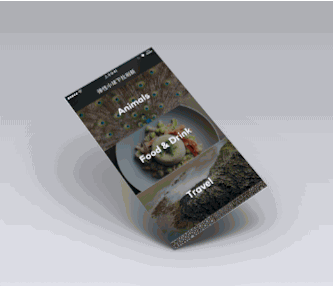KYJellyPullToRefresh 1.1.0
| TestsTested | ✗ |
| LangLanguage | Obj-CObjective C |
| License | MIT |
| ReleasedLast Release | May 2015 |
Maintained by KittenYang.
KYJellyPullToRefresh 1.1.0
- By
- KittenYang
实现弹性物理效果的下拉刷新
How To Use
Firstly,in your ViewController or TableViewController,initiate the Jellview and the "displayLink" in the - (void)scrollViewDidScroll:(UIScrollView *)scrollView method:
Like this:
- (void)scrollViewDidScroll:(UIScrollView *)scrollView
{
if (self.displayLink == nil && (-scrollView.contentOffset.y - 64.5) > 0) {
self.jellyView = [[JellyView alloc]initWithFrame:CGRectMake(0, -jellyHeaderHeight , [UIScreen mainScreen].bounds.size.width, jellyHeaderHeight)];
self.jellyView.backgroundColor = [UIColor clearColor];
[self.view insertSubview:self.jellyView aboveSubview:self.tableView];
self.displayLink = [CADisplayLink displayLinkWithTarget:self selector:@selector(displayLinkAction:)];
[self.displayLink addToRunLoop:[NSRunLoop mainRunLoop] forMode:NSRunLoopCommonModes];
}
}
Then you should change the controlPoint of the Bezier Path
-(void)scrollViewDidEndDragging:(UIScrollView *)scrollView willDecelerate:(BOOL)decelerate{
CGFloat offset = -scrollView.contentOffset.y - 64.5;
if (offset >= 130) {
self.jellyView.isLoading = YES;
[UIView animateWithDuration:0.3 delay:0.0f usingSpringWithDamping:0.4f initialSpringVelocity:0.0f options:UIViewAnimationOptionCurveEaseInOut animations:^{
self.jellyView.controlPoint.center = CGPointMake(self.jellyView.userFrame.size.width / 2, jellyHeaderHeight);
NSLog(@"self.jellyView.controlPoint.center:%@",NSStringFromCGPoint(self.jellyView.controlPoint.center));
self.tableView.contentInset = UIEdgeInsetsMake(130+64.5, 0, 0, 0);
} completion:^(BOOL finished) {
[self performSelector:@selector(backToTop) withObject:nil afterDelay:2.0f];
}];
}
}
Lastest,remove everything:
//动画结束,删除一切
-(void)scrollViewDidEndDecelerating:(UIScrollView *)scrollView{
if (self.jellyView.isLoading == NO) {
[self.jellyView removeFromSuperview];
self.jellyView = nil;
[self.displayLink invalidate];
self.displayLink = nil;
}
}
